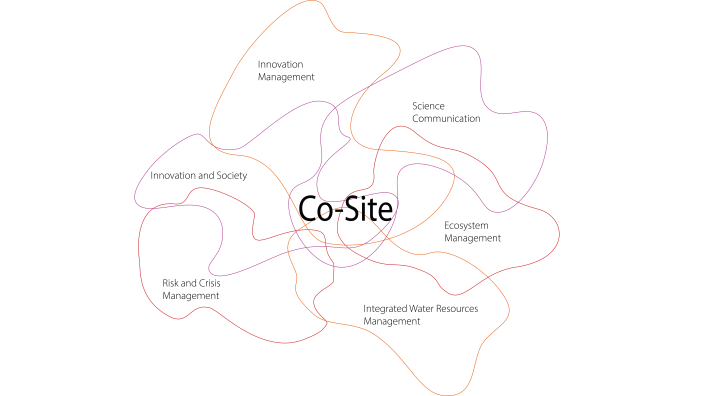Co-Site | Research Disciplines
Co-Site's scientific expertise spans a wide range of research disciplines, reflecting TH Köln's commitment to shaping social innovation.
 (Image: TH Köln)
(Image: TH Köln)
Recognizing that applied research on future tasks necessitates collaboration across disciplinary boundaries, scientists from three faculties form an interdisciplinary project team. The following is an overview of the research disciplines and their focus in the project.
Ecosystem Management: How can ecosystems be protected, restored, and sustainably utilized? The focus is on the use of ecosystems for climate adaptation and the mitigation of natural hazards in urban and rural areas. In Co-Site, the group led by Prof. Dr. Udo Nehren works on green-blue infrastructures, for example, to mitigate the urban heat island effect and for flood protection.
Innovation Management / Innovation and Society: How can innovations be developed collaboratively? The focus of innovation management is on creative collaboration processes. Also in Co-Site, collaborative work is done co-creatively. The chairs of Prof. Dr. Valérie Varney and Prof. Dr. Anja Richertsupport collaboration with local partners with expertise in Co-Design, VR/AR applications, and monitoring. They ensure that all stakeholders are involved and solutions are generated that benefit everyone.
Integrated Water Resources Management: How can water resources be sustainably managed? The primary focus is on a systematic understanding of the water cycle and its interactions with different forms of land use. With their expertise, the group led by Prof. Dr. Lars Ribbe particularly supports the development of blue-green infrastructures to address drought stress and heavy rainfall, contributing to water-conscious spatial and urban development.
Risk and Crisis Management: How can the risks of crisis events be reduced, and how can disaster management be improved? The risks of extreme situations and natural disasters are increasing due to climate change. In Co-Site, the group led by Prof. Dr. Lars Ribbe develops strategies for critical infrastructure in the region. They devise plans on how critical infrastructure, such as hospitals or fire stations, can be better protected and supported during crises.
Science Communication: What does science research? Science communication is important to engage people in science and involve them in it. The chair of Prof. Dr. Claudia Frick accompanies the project and develops formats to make research processes and results accessible.
The various disciplines and their distinct focal points converge in Co-Site, presenting opportunities to leverage the diversity of perspectives and intersections for the region's benefit.
